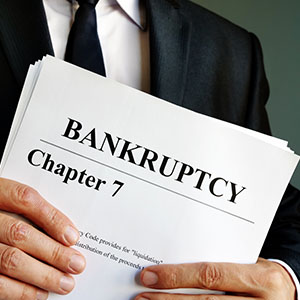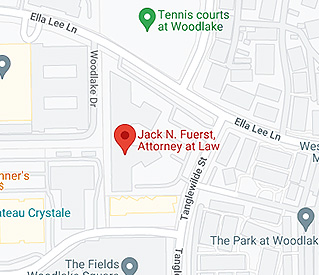
Secured debt is debt that is backed by collateral such as a house or vehicle, whereas unsecured debt is debt created without collateral promised to the creditor like credit card debt. If the majority of your debt falls under the category of unsecured, you want to file for Chapter 7 bankruptcy. If you own a house or a car and you are making your payments on time, you can still qualify for a Chapter 7 bankruptcy. In this case, you have to reaffirm the debt associated with the house or car you want to keep. When the reaffirmation agreement is signed with a creditor, you reaffirm all the terms and conditions of the existing contract that will allow you to maintain your home or your vehicle in bankruptcy. To determine if you qualify for Chapter 7 bankruptcy, you must complete a means test.
What Is The Means Test For A Chapter 7 Bankruptcy In Texas?
The primary purpose of the means test is to determine if you qualify for Chapter 7 bankruptcy. The most important factors considered are your annual income and the number of people in your household. If you meet the income requirements you can qualify for Chapter 7, but if your income exceeds a certain amount you will have to file for Chapter 13 bankruptcy. The means test allows you to earn a specified income based on the number of individuals in your household.
Certain deductions can be applied to get your income below the mean. For example, child support and taxes can be deducted from your gross income, which can put you below the mean, allowing you to qualify for Chapter 7.
What Debts Are Discharged In A Chapter 7 Bankruptcy?
All your unsecured debt such as credit cards and payday loans are discharged in Chapter 7 bankruptcy. However, you cannot discharge student debt, child support obligations, spousal support obligations, a judgment in a lawsuit whereby you perpetrated an injury to a person or created a criminal act, and, as a general rule, taxes. However, under certain fact situations, income taxes may be discharged. If an unsecured debt is not included in your filing, it is not dischargeable.
Everything else is dischargeable. If you choose to give up your secured asset, the associated debt can be included in the bankruptcy as well. For example, if you have a car that you wish to get rid of, you can give the car back and not worry about being sued. That debt will be dischargeable.
What Assets Will I Be Able To Keep In A Chapter 7 Bankruptcy?
Certain property in bankruptcy is termed exempt property, which means it is not subject to seizure for sale by the bankruptcy trustee. Property that may be seized by the trustee is termed non-exempt property. What is exempt and what is non-exempt differs dependent upon what code, either the State or Federal Codes, you file under. Whether you use the State Codes or the Federal Codes is determined by your particular fact situation. Normally, Texas Rules are more generous with property, and the Federal rules are more generous on liquidity. For example, under the Texas Rules, subject to some monetary limitations, you will be able to keep the following assets in a Chapter 7 Bankruptcy: your homestead, vehicles, household goods, furniture, clothing & jewelry, electronics, 401(k) plan or any other retirement plan, and, firearms. If you file under the federal rules, you can exempt most of the aforementioned together with a specified limit of cash in your savings and checking account. Under Texas rules, you cannot exempt cash.
As a general rule, you file under federal rules if you don’t own a home. You file under state rules if you own a home. The federal rules are generous towards liquidity and harsh towards property. Texas rules are generous towards property but harsh towards liquidity. Your financial assets will dictate how you file bankruptcy.
Are There Any Downsides To Filing A Chapter 7 Bankruptcy? What Could I Potentially Lose?
The downside of filing for Chapter 7 bankruptcy is the negative effect it will have on your credit. Although, if you are reaching out to a bankruptcy attorney, your credit is already suffering. After receiving a discharge in bankruptcy, initially, it will be more difficult to purchase a home, but as you rebuild your credit over time, this will become less of a problem.. You will be able to purchase a new or used vehicle, but a problem will be the interest rate that you will be charged. With a poor credit score, you will be considered a riskier customer, which means the seller can charge you a higher interest rate because of your unreliability in the past.
How Long Does A Chapter 7 Generally Take to Complete?
Chapter 7 bankruptcy takes about 90 days to complete from the date of filing to the date of discharge.
For more information on Chapter 7 Bankruptcy In The State Of Texas, a free initial consultation is your next best step. Get the information and legal answers you are seeking by calling (713) 299-8221 today.

Call For A Free Consultation
(713) 299-8221
